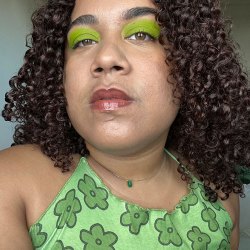There’s hyaluronic acid, salicylic acid and even polyglutamic acid. But the ingredient I’ve noticed garnering the most attention on social media lately is hypochlorous acid. Said to destroy bacteria, clear infections and germs, it’s an ingredient that’s commonly found in cleaning supplies. So how did it make its way into our skincare products? I tapped a few dermatologists to find out more about hypochlorous acid and whether it’s really safe to use on our skin. Here’s what I uncovered.
We Ask a Derm: What Is Hypochlorous Acid (and Is It Safe to Use on Your Skin)?
Here’s what I discovered
Meet the Experts
- Dr. Marisa Garshick is a board-certified dermatologist in New York and New Jersey at MDCS Dermatology. She is also a clinical assistant professor of dermatology at New York Presbyterian-Weill Cornell Medicine. She specializes in cosmetic and medical procedures and treatments for acne, psoriasis, skin cancer and more.
- Dr. Omer Ibrahim is a board-certified dermatologist and co-director at Chicago Cosmetic Surgery and Dermatology. He has a medical degree from Yale University School of Medicine and completed a dermatology residency at Cleveland Clinic. He specializes in general and cosmetic dermatology such as hair loss treatments, injectables and laser procedures.
- Dr. Azadeh Shirazi is a board-certified dermatologist specializing in medical, surgical and cosmetic dermatology. She received her undergraduate and medical degrees from the University of Kentucky College of Medicine. She also completed a research fellowship at Harvard Medical School at the Wellman Center for Photomedicine.
What Is Hypochlorous Acid?
Hypochlorous acid (HOCI) is actually found in our bodies, specifically in our white blood cells to help fight off bacteria and infection. As Dr. Garshick explains, “Hypochlorous acid is made up of hydrogen, oxygen and chloride, which offers antimicrobial and anti-inflammatory benefits. Although historically unstable, [newer] formulations [specifically for skincare] have been developed to be stable and good for cosmetic use.”
What Is Hypochlorous Acid Used For?
It’s commonly used in cleaning supplies such as bleach, disinfectant wipes and pool cleaners. According to the United States Environmental Protection Agency, it's also a great ingredient for disinfecting surface areas to prevent the spread of COVID-19. But most recently, chemists have found a place for it in our skincare products, including facial sprays, cleansers and serums.
Is Hypochlorous Acid Safe to Use on Skin?
According to the experts, hypochlorous acid is safe to use on your skin. While it may sound like it can be too harsh and potentially drying, HOCI found in skincare products is typically gentler and non-irritating, as a lower concentration of the ingredient is used to get the job done. However, Dr. Ibrahim warns people against trying to create their own hypochlorous acid at home. “Please do not dilute hypochlorous acid-based disinfectants to use on your skin. When it comes to hypochlorous acid, concentration is very important. Those used in disinfectant sprays are not formulated to be safe for skin and can in fact cause severe irritation,” he warns.
What Does Hypochlorous Acid Do for Your Skin?
When you pick up a product that’s already formulated with a safe level of hypochlorous acid in it, it can be great for your skin. Here are four key benefits of using HOCI in your routine.
- It has antibacterial properties. Research shows that hypochlorous acid has antibacterial and antimicrobial properties, which can fight bacteria, unclog pores and clear up acne. “As an antimicrobial solution, it helps reduce bacteria that plays a role in common conditions such as acne, eczema and psoriasis,” explains Dr. Shirazi.
- It repairs skin. Since the ingredient kills bacteria, one clinical study found that HOCI speeds up the skin’s healing process, working to repair wounds and prevent future breakouts and scars. Dr. Ibrahim adds, “For individuals with dry or cracked skin, hypochlorous acid can also promote cell turnover and support the skin’s natural repair mechanisms.”
- It contains anti-inflammatory properties. Hypochlorous acid is known to soothe skin and reduce signs of redness, irritation or inflammation.
- It’s moisturizing. “Hypochlorous acid helps hydrate the skin by attracting and retaining moisture, which can alleviate dryness and tightness often associated with dry skin,” shares Dr. Ibrahim.
Are There Any Side Effects to Using Hypochlorous Acid?
Although the derms deem the ingredient is safe in most cases, some people may still be allergic to it. As always, do a patch test to make sure you don’t experience any irritation or redness before adding HOCI to your routine.
Who Should Use Hypochlorous Acid?
Hypochlorous acid works for all skin types, but is especially good for those with sensitive and/or acne-prone skin. “Since it offers antibacterial and anti-inflammatory properties, it doesn’t irritate the skin. It can also be appealing for those with acne-prone skin who can’t tolerate [skincare ingredients like] benzoyl peroxide or salicylic acid,” says Dr. Garshick.
How Should You Use Hypochlorous Acid?
The best way to use hypochlorous acid is through a facial spray. It will absorb quickly and is the easiest, most hygienic way to apply on the skin. A spray is also great to take on the go, especially after an intense workout. At home, you can spray hypochlorous acid right after cleansing your face, one to two times a day, either in the morning or at night.
Bottom Line
Hypochlorous acid can be an all-star skincare staple for many. It works to clear up acne, soothe inflamed skin, calm irritation and speed up the wound healing process. If you’re looking for a way to implement it into your routine, consider adding a facial spray into the mix. I've linked to a few favorites below.




